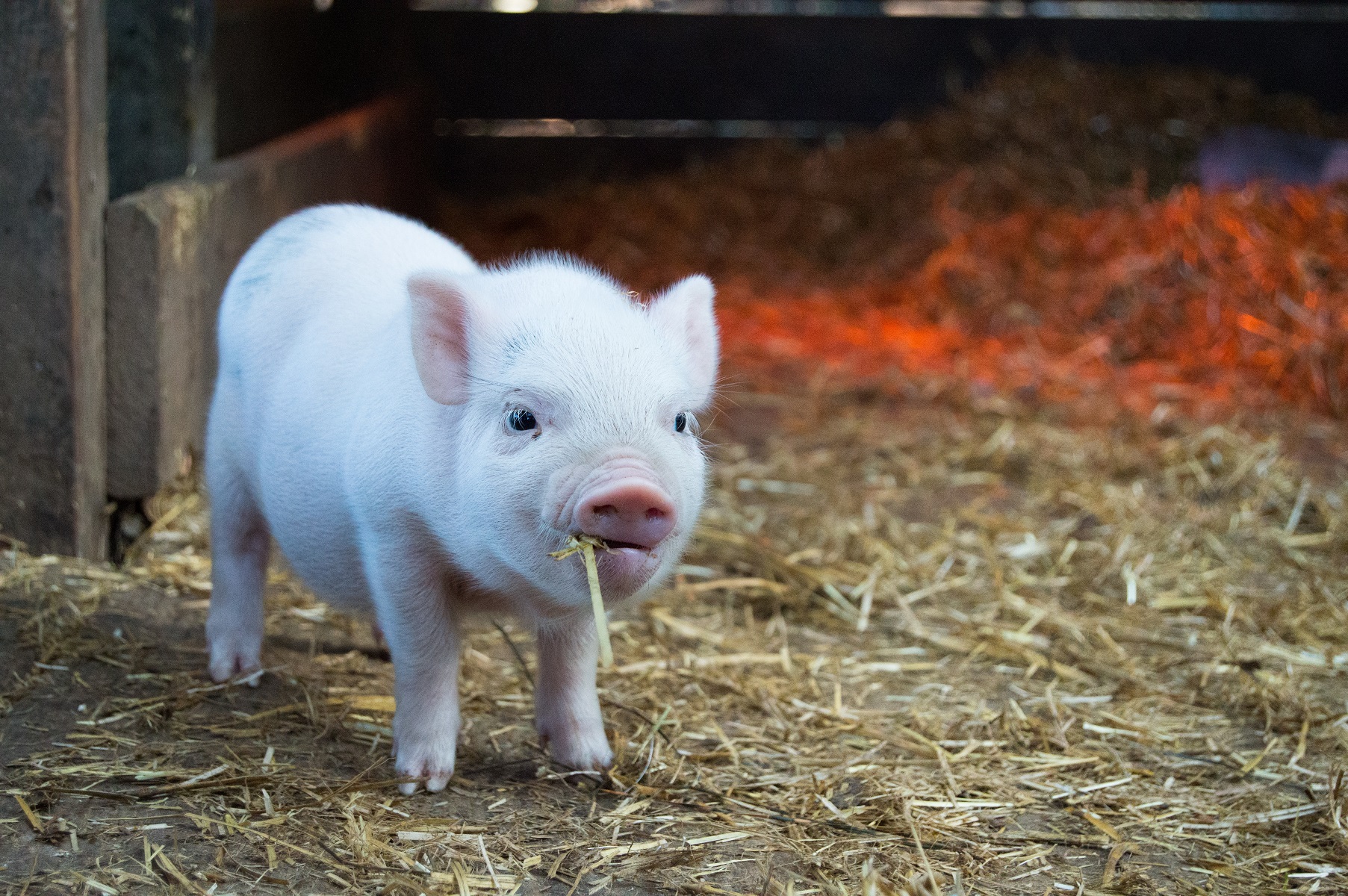If the past 10 years of popular culture have shown us anything, it’s that we’ve got an insatiable appetite for all things fantastical.
Game of Thrones. Stranger Things. The Star Wars and Star Trek reboots.
Amazingly, some of it is unashamedly science-y: Marvel films have played with time travel and the “many worlds theory”; hit Netflix series ‘Dark’ has dealt with quantum entanglement and black holes.
So, perhaps it’s no surprise that science fiction writing is gaining ground around the world. What might be a surprise is that there’s a boom in award-winning science fiction writing from China—which is already ‘conquering America’, earning praise from former US President Barack Obama and waiting in the wings to become your next favourite TV series.
We bring you five key writers behind the boom.
Liu Cixin (刘慈欣)

Photo on penumbria.mx
Liu Cixin is an absolute superstar in China. His famed Three Body Problem trilogy, first published in 2008, paved the way for countless other writers to start mixing cultural history with scientific advances.
His novels begin when a scientist makes contact with an alien race, who, seeing Earth’s location for the first time, decide to invade. But as it will take hundreds of years for the aliens to arrive, three generations on earth pass by as the world prepares for the invasion.
The first book in the trilogy was translated into English in 2014 by US-based writer Ken Liu, and Liu Cixin’s international popularity since then has been astronomic. It won the Hugo Award for Best Novel in 2015—the first Asian book to win the Nobel Prize for Science Fiction. In an interview with the New York Times, former US President Barack Obama described the series as “wildly imaginative, really interesting.”
Now David Benioff and DB Weiss, the people who adapted and brought Game of Thrones to the screen, have announced that their next project will be a Netflix series based on Liu’s trilogy. Rian Johnson—the Director of Star Wars’ The Last Jedi—and producers from HBO’s True Blood are also involved in the project.
Despite clear references to the Cultural Revolution in the book, Liu dismissed suggestions that he used science fiction as a way to criticise Chinese society. “I write for the love of sci-fi itself. It’s sci-fi for sci-fi’s sake. I don’t consciously write science fiction to reflect, criticise or allude to social reality,” he said in an interview with Oxford Scientia.
Liu Cixin’s 2000 novella, The Wandering Earth, was adapted into a science fiction action film and released in 2019. It became the third highest-grossing non-English film to date, raking in $700 million. Netflix bought the global streaming rights.
Ken Liu

Photo on Ksenia Anske blog
Harvard-educated Ken Liu—or, to many, ‘The Man Who Turned Chinese Science Fiction Into A World Phenomenon’—is a writer and translator based in the US.
Like Cixin Liu, Ken Liu is a Hugo Award winner for his short stories The Paper Menagerie in 2012 and Mono no aware in 2013. His Dandelion Dynasty trilogy, set in an East Asian-inspired fantasy universe, has been branded “silkpunk”—steampunk with Asian aesthetics. His recent story Good Hunting was turned into an episode of Netflix’s animated series, Love, Death & Robots.
But Ken Liu is perhaps best known for translating the first and third books in the Three Body Problem series, as well as working to raise the profile of contemporary Chinese science fiction.
Following the boom in interest in the genre, he translated short stories by several contemporary Chinese science fiction writers and compiled the stories into a celebrated anthology called Invisible Planets. He followed this up with another anthology, Broken Stars, in 2019.
Hao Jingfang (郝景芳)

Photo on scmp
Hao Jingfang is perhaps best known for her story Folding Beijing, which was translated into English by Ken Liu and included in the Invisible Planets anthology. In 2016, she became the first Chinese woman to win the Hugo award.
The story centres on a futuristic version of Beijing that operates on a 48-hour cycle, in which society is stratified into three distinct ‘spaces’. A small number of the elite live in the beautifully lush ‘First Space’, which is awake for 24 hours at a time. After this time, everyone is put into a deep sleep, while the whole city folds up and flips over. The underside is home to ‘Second Space’, where the comfortable middle class work and exist for 16 hours a cycle, and ‘Third Space’—home to the working class—which is awake for a mere 8 hours every 48-hour cycle. People in Third Space spend their limited life working throughout the night to keep everything comfortable in the other two spaces.
Jingfang, who has degrees in economics and management, says that the story is just “one of the many ways I’ve thought about inequality.” Her day job is with the China Development Research Foundation, a nonprofit research organisation that has designed nutritional supplement programmes and built infant schools for children from rural, poor regions, whose parents often travel to distant cities for employment as migrant workers.
“The foundation is a small group that can touch First Space, but chooses to cheer on Third Space. We’re not many, but we’ll never give up,” she says in one interview.
“The structure of the real world, of course, is also unfair and unjust, like the world in the story, and in fact the real social pyramid may be even more extreme than the one portrayed in my tale.”
Baoshu (宝树)

Photo on Melon
The writer known as Baoshu, a pseudonym that references an evil monk created by famed Wuxia writer Ji Yong, rose to fame with Three Body X, an unsolicited—but ultimately well-revered—sequel to the final book in Liu Cixin’s Three Body Problem trilogy. Liu liked it so much that he later authorised its publication with the same publishing house in 2011. It was released in English in 2019 as The Redemption of Time, and translated by—you guessed it—Ken Liu.
Baoshu has a reputation for telling stories centred on philosophy, a result of studying philosophy at both Peking University and KU Leuven, Belgium.
One story, What Has Passed Shall in Kinder Light Appear, weaves a narrative of two lovers from Beijing reunited and continually separated by global events. However, history here exists in an alternate timeline, beginning with the 2008 Olympics and working backwards through various leaders and tragic events—the SARS outbreak, the Tiananmen Square massacre, the Cold War, Chairman Mao’s Cultural Revolution.
According to Wikipedia, the story’s controversial subject matter in China meant that it was originally only circulated online. It made it into print when it was included as one of the stories in Ken Liu’s Broken Stars anthology.
Xia Jia (夏笳)

Photo on Radio Taiwan International
Academic and writer Wang Yao, known by her pseudonym Xia Jia, is renowned for her dreamlike worlds and fantastical stories, often set in a near-future China.
Xia Jia studied atmospheric sciences at Peking University, then cinematography at the Communication University of China, where her final dissertation piece was on the figure of the woman in science fiction films. She’s currently a professor at Jiaotong University in Xi’an.
She writes about the interplay of reality with AI and virtual reality. In one story, “A Hundred Ghosts Parade Tonight,” a child stumbles through what seems to be a street haunted by ghosts, only to eventually learn that it is a theme park from the future, in ruins, populated by fading humanoid robots.
Several of her stories appeared in the two anthologies compiled by Ken Liu.




